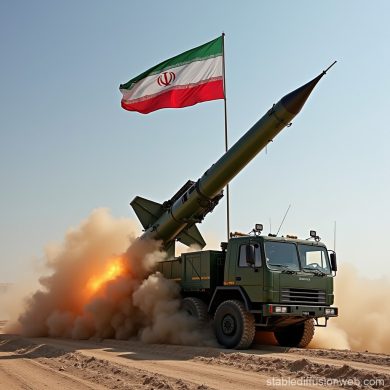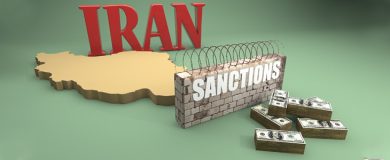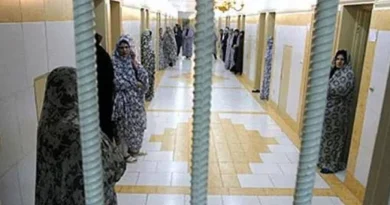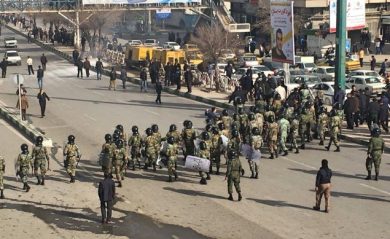The Islamic Revolutionary Guard Corps (IRGC) has long been the primary enforcer of gender-based oppression in Iran, targeting women through strict laws, surveillance, imprisonment, and violence. However, rather than silencing them, these oppressive tactics have ignited a powerful resistance movement, with Iranian women leading the charge for freedom.
This report explores:
• The IRGC’s role in enforcing gender oppression.
• How systemic discrimination against women fuels resistance.
• The role of Iranian women in protests, digital activism, and global advocacy.
• Why the international community must act to support women in Iran.
1. The IRGC: Enforcing Gender Oppression in Iran
A. The IRGC as the Regime’s Enforcer
The IRGC, established after the 1979 Islamic Revolution, functions as:
• A military force protecting the regime from internal and external threats.
• An economic powerhouse controlling key industries.
• The main instrument of repression, targeting activists, journalists, and protesters—especially women.
B. Compulsory Hijab Laws: Controlling Women’s Bodies
The IRGC and its affiliated forces, such as the Morality Police, enforce:
• Mandatory hijab laws, punishing women who refuse to comply.
• Public harassment, arrests, and imprisonment for dressing “immodestly.”
• Surveillance via cameras in public spaces to track unveiled women.
This state-imposed dress code is more than a religious rule—it’s a tool of control meant to subjugate women and enforce submission to the regime.
C. Legal Discrimination and Economic Marginalization
Beyond clothing laws, the IRGC upholds systemic gender discrimination by:
• Restricting women’s rights in marriage, divorce, and child custody.
• Limiting women’s participation in politics, education, and employment.
• Banning women from attending sports stadiums and cultural events.
By controlling women’s personal, professional, and social lives, the IRGC ensures their economic dependence, further limiting their ability to resist oppression.
2. The IRGC’s Brutal Tactics Against Women Protesters
A. Crackdown on Women-Led Protests
Iranian women have led protests for decades, from the Green Movement (2009) to the “Women, Life, Freedom” protests (2022–2023). The IRGC has responded with:
• Mass arrests of women protesters.
• Torture and sexual violence in detention centers.
• Targeting activists’ families to silence them.
B. The Use of Sexual Violence as a Weapon
Reports from prisons like Evin and Qarchak reveal:
• Rape and sexual assault used as methods of intimidation.
• Forced confessions extracted through threats of abuse.
• Psychological torture, including solitary confinement and forced virginity tests.
Rather than deterring women, these brutal tactics have strengthened their resolve to fight back.
3. How Gender Oppression Fuels Resistance
A. The Power of Everyday Defiance
Despite harsh punishments, Iranian women are resisting oppression daily by:
• Removing their hijabs in public.
• Dancing and singing in the streets, acts banned by the regime.
• Boycotting state-controlled workplaces and schools.
These acts of defiance disrupt the IRGC’s power, proving that control through fear is no longer working.
B. Digital Resistance: Fighting Back Online
Women use social media to:
• Share videos of protests and police violence.
• Organize underground resistance networks.
• Expose IRGC crimes to global audiences.
Despite internet shutdowns, Iranian women continue to spread the truth, ensuring their movement cannot be erased.
4. Key Figures Leading the Women’s Resistance
A. Narges Mohammadi – The Imprisoned Human Rights Advocate
• Nobel Peace Prize laureate, jailed multiple times for defending women’s rights.
• Exposed torture and sexual abuse in Iranian prisons.
• Continues to fight from behind bars, inspiring a global movement.
B. Masih Alinejad – The Voice of Iranian Women in Exile
• Founder of #MyStealthyFreedom, a campaign encouraging women to remove their hijabs.
• Target of IRGC assassination plots for her activism.
• Uses social media and global platforms to amplify women’s resistance.
C. Sepideh Gholian – The Fearless Journalist
• Repeatedly imprisoned for exposing state corruption.
• Refused to be silenced even after years of torture.
• Became a symbol of defiance when she shouted anti-IRGC slogans upon her release from prison.
These women, along with thousands of anonymous protesters, are shaping Iran’s future.
5. How the World Can Support Iranian Women
A. Designating the IRGC as a Terrorist Organization
The United States has designated the IRGC as a terrorist organization, but:
• The European Union, United Kingdom, and Canada must follow.
• Global action would cut off the IRGC’s financial networks.
• This would weaken their ability to suppress women’s rights movements.
B. Supporting Digital and Physical Safe Spaces
Governments and organizations should:
• Provide VPNs and encrypted apps to bypass censorship.
• Offer asylum to activists fleeing persecution.
• Support safe houses for at-risk Iranian women.
C. Imposing Sanctions on Human Rights Violators
International bodies should:
• Freeze assets of IRGC officials responsible for gender-based violence.
• Ban travel for IRGC commanders and government leaders involved in repression.
• Fund legal efforts to hold Iranian officials accountable in international courts.
D. Amplifying Iranian Women’s Voices
The global community must:
• Share their stories, ensuring their fight remains in the public eye.
• Pressure media outlets to continue covering Iranian women’s resistance.
• Demand that human rights organizations prioritize Iran’s gender oppression crisis.
Conclusion: The IRGC Cannot Silence Women’s Freedom Movement
Despite the IRGC’s brutal repression, Iranian women refuse to be silenced. Their resistance is growing, and their fight has galvanized global support.
The world must act—not just with words, but with concrete actions:
✔ Recognize the IRGC as a terrorist organization.
✔ Provide support to Iranian activists.
✔ Sanction those responsible for gender-based violence.
✔ Amplify Iranian women’s voices worldwide.
Join Our Newsletter!
Stay informed with the latest updates, news, and ways to take action in the fight for justice and global security. Sign up now to get updates delivered straight to your inbox!





